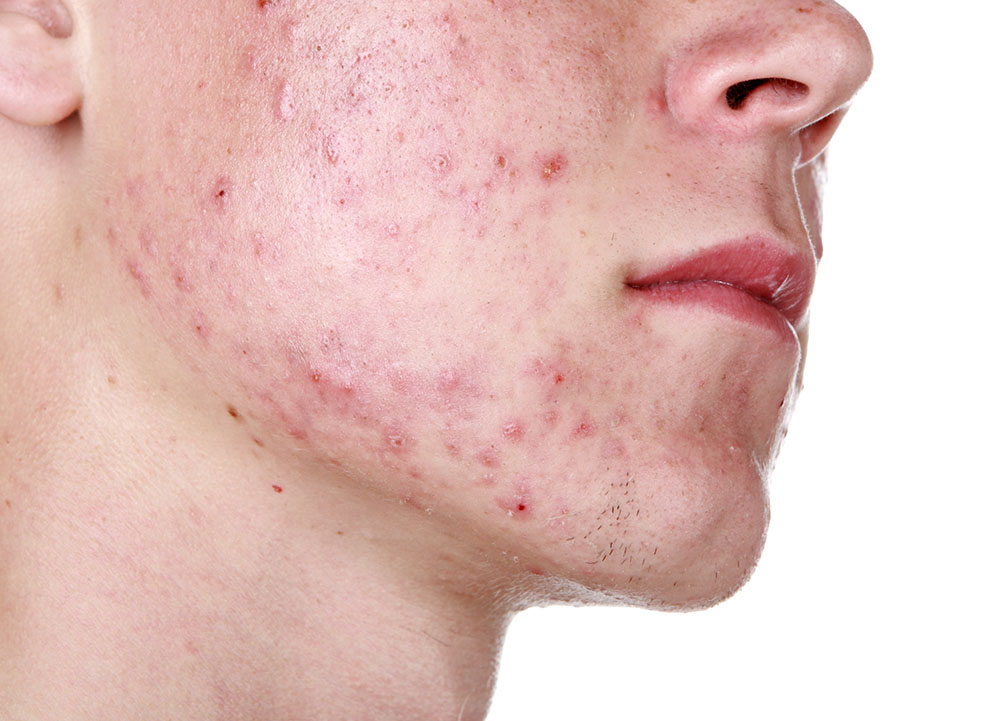
About Our Accutane Treatment
Isotretinoin, known as Accutane, is a potent oral treatment for severe or scarring acne. As a retinoid, it reduces skin oil production, pore blockage, and inflammation. Treatment with Accutane is individualized, often lasting at least six months with regular medical assessments and blood tests to monitor its effects and potential side effects. Although effective in improving severe acne, it’s important to note that lasting remission may require additional treatment rounds.
Metropolis Dermatology specializes in Accutane therapy for severe acne, guided by experienced specialists and healthcare providers who closely monitor treatment progress and ensure patient safety. The process for Accutane in the United States requires a government program called iPledge, with strict adherence guidelines to prevent pregnancy. Although Accutane has had a lot of negative press, it is given safely every day with appropriate monitoring.
We also offer alternative dosing methods like microdosing to achieve remission while minimizing discomfort from side effects. Our comprehensive approach ensures the best possible outcome for each patient’s unique needs.
Understanding Moles
If you are unclear on the mole definition, find out more about it here. A mole, also known as nevus, is a cluster of pigmented cells that appear as dark spots on the skin. They develop due to the accumulation of melanocytes, the pigment-producing cells.
While most skin moles are harmless, understanding their formation is essential. Explore topics such as the definition of moles, their development, and their connection to melanin production.
Types of Moles
Delve into the various types of moles here:
- Congenital moles - Present at birth, larger in size, potential for increased melanoma risk.
- Dysplastic nevi - Irregular shapes, varying colors, higher melanoma risk.
- Common moles - Everyday pigmented spots, usually harmless. Vary in color and size, often round or oval.
Signs of Atypical Moles
Identifying atypical or suspicious moles involves paying attention to specific characteristics. Watch for asymmetry, irregular borders, variations in color, and any changes in diameter or evolution in appearance.
If a mole exhibits these irregularities during self-examination, it's crucial to seek professional evaluation promptly. Monitoring mole irregularities helps in the early detection of potential skin issues, ensuring timely intervention and peace of mind.
ABCDEs of Melanoma Detection
Learn the rules of ABCDE for melanoma skin cancer detection, such as the following:
- Assess moles for Asymmetry, ensuring both halves match
- Inspect irregular Borders
- Note Color variations
- Monitor Diameter, with a threshold of 6mm
- Be vigilant for any Evolving changes in size, shape, or color.
Understanding and applying these criteria during mole examination enhances early skin cancer detection and intervention.
Mole Self-Examination Guide
Conduct a thorough self mole examination with these steps. Use a mirror to check moles on all body parts in a well-lit area. Look for asymmetry, irregular borders, color changes, and any variations in size. Enlist a partner for hard-to-reach areas. Perform this skin check at home monthly to detect any abnormalities early, ensuring proactive skin health.
When to See a Dermatologist
Book a dermatologist mole check if you notice sudden changes, itching, bleeding, or any concerns about the ABCDE criteria. Timely dermatologist consultations ensure accurate assessments and proactive interventions, promoting peace of mind regarding your skin health. Don't hesitate; prioritize your well-being with professional mole consultation.
Hear from
Real Patients

Schedule Your Consultation Today
Take control of your skin health. If you have concerns about moles or notice changes, don't hesitate to book a consultation for a mole check. We have customers coming in from Brentwood, Downtown L.A., Pasadena, Costa Mesa & Orange County. Schedule an appointment with Metropolis Dermatology today!
